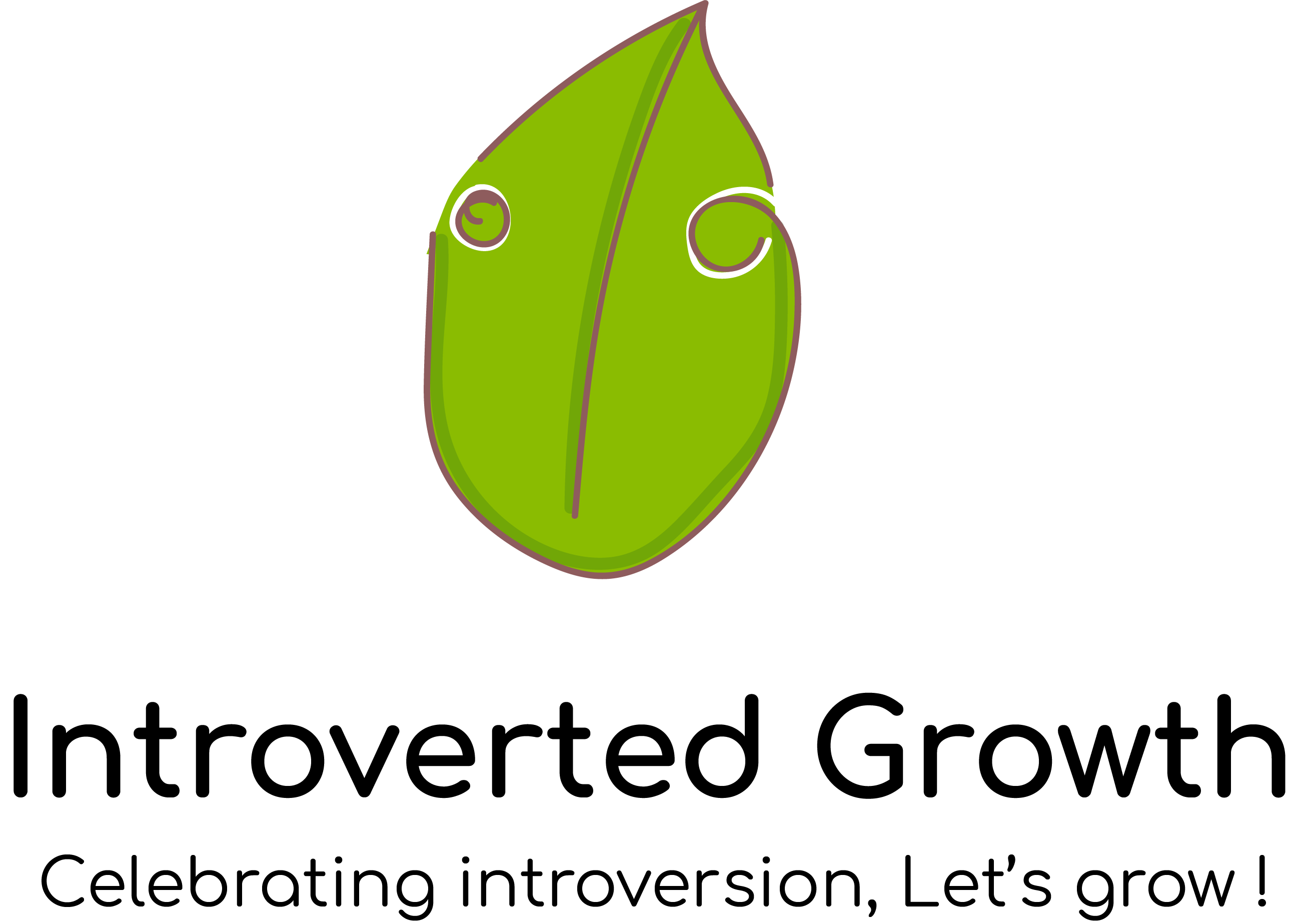This is going to be the first article in a series where I’ll be going over the 8 cognitive functions, identifying them in the simplest way I can, and offering signs of having each function.
Since I aim to make my introverted (and even extroverted ) readers get more insight into their personality type and the qualities that come with each personality.
Now, let’s dive right in!
What is Introverted Sensing: Si Function Explained?
Introverted sensing (Si) is one of the 4 perceiving functions (the other 3 being Extroverted sensing (Se), Introverted intuition (Ni), and Extroverted intuition (Ne)),
It is considered to be an introverted function which means that the information is gathered from within the person’s own mind and as such very subjective.
The Si Function is all about using one’s internal memories and similar past experiences to give meaning to anything they’re currently doing.
So what sets Si users apart from the other types?
Si users tend to have an uncanny sense of detail and they use their vivid memories to determine the way they understand and interact with the world around them.
They are known to have a strong memory of past events, often with vivid details of what was taking place.
Unlike Ni users, people with Si function prefer to focus on the physical and tangible world. They’re skeptical of anything that cannot be proven by tangible evidence.
- (Si) is the dominant function of ISJ personality types: ISTJ, ISFJ
- (Si) is the auxiliary function of ESJ personality types: ESTJ, ESFJ
To give you more understanding of how an introverted sensing type uses this perceiving function, here are some…
Introverted Sensing Examples:
- An introverted sensor will most likely remember every detail of their 3rd-grade school trip, even if it happened a decade ago and they’ll even remember how they felt that day.
- A mother with a dominant Si function will likely perceive Holidays as sacred events because she’d vividly remember how the family gets together and how the house fills with laughter and children’s noise when she thinks about holidays.
- A Chef with a dominant Si function will know the precise way to cook a rare steak, when will it be ready to turn, and how to keep the heat just by vividly recalling cooking it in the past.
8 Signs That Will Help You Identify Yourself as an Introverted Sensor!
-
You’re able to find the word that perfectly describes how you feel.
And I mean exactly describe it, no other words but the word you thought of will do! You know if a place feels homey or not and you can even give its level of comfort and pleasantness.
-
You Like to Compare a lot.
You like to compare prices, foods you eat, the way things smell. Even how people act today compared to last week.
You love comparing your current situation with how it was in the past especially if there’s a difference between them.
-
You like to plan things out.
You prefer planning your day ahead and expecting what will happen in your day.
You always know what needs to be done next because of your past experiences.
You’re also a routine person, meaning you like to have a set of daily habits that you anticipate doing and will be thrown off if anything goes wrong with your routine.
-
You have a strong memory
You can easily remember names, numbers, things you’ve seen, places you’ve been to, people you’re familiar with.
You store every single detail about that person in your memory for future references so next time you have a glimpse of that person even after years, you won’t have any trouble recognizing them.
-
Your past memories affect how you perceive things around you now
If something happens today that reminds you of an event or someone from your past, it will affect your reaction to the current situation.
whether it’s in a positive or negative way, you always expect things to be the way they were based on how you’ve experienced them in the past.
-
You’re a very detail-oriented person
You pay attention to details more than most people.
what colors are used, how things smell, their texture, the way they taste, how they sound, etc.
You notice all these little details and it makes your world more vivid because of its richness to you.
-
You enjoy reliving Good memories
The introverted sensing types are very nostalgic, meaning they enjoy re-experiencing good memories.
And if you have a dominant Si, you tend to re-watch your favorite movies or songs from the past, go back to the places you’ve been before, and even read a piece of fiction from your childhood.
-
You actually learn from your past mistakes
Your senses will strongly prevent you from repeating an act that you perceive as a mistake again, which is why you learn from your past mistakes quickly compared to other people around you.
9. You have a strong sense of tradition and history
As an individual with a dominant Si function, you tend to have a strong sense of tradition and history. You value past experiences and often have a deep understanding of cultural customs and practices.
You may also have a strong sense of nostalgia and enjoy revisiting the past.
10. You have a strong sense of body awareness
As an individual with a dominant Si function, you tend to have a strong sense of body awareness. You are in tune with your physical sensations and may have a keen sense of taste, smell, and touch.
You may also be more attuned to your physical needs, such as hunger and fatigue.
11.You’re a stickler for consistency
As an individual with a dominant Si function, you tend to be a stickler for consistency. You prefer to stick to familiar routines and patterns, and may have a hard time adapting to sudden changes. You may also have a hard time accepting new ideas or perspectives that are different from your own.
Understanding the Si function in decision making
Introverted sensing (Si) plays a crucial role in decision making for individuals who have a dominant Si function. These individuals rely on their past experiences and memories to guide them in making decisions, rather than external factors or the opinions of others.
This can lead to a strong sense of familiarity and comfort, but it can also make it difficult for Si types to adapt to new situations or take risks.
How the Si function differs from Te and Fi in decision making
Introverted sensing (Si function) is often compared to the other decision-making functions, extroverted thinking (Te) and introverted feeling (Fi). Te types base their decisions on logic and objective facts, while Fi types rely on their personal values and emotions.
In contrast, Si types make decisions based on their past experiences and memories. While Te and Fi types may prioritize efficiency and inner harmony, Si types prioritize familiarity and comfort.
Real-life examples of Si in action
- An Si type may choose a job that is similar to one they had in the past, because they feel comfortable with the responsibilities and duties.
- An Si type may turn down a new opportunity because they are unsure of how it will turn out, and prefer to stick to what they know.
- An Si type may have a hard time adjusting to a new place or new people because they lack the familiar memories and past experiences they rely on.
Tips for developing a healthy Si function
- Embrace new experiences and try new things, even if they feel uncomfortable or unfamiliar. This can help you build a broader range of past experiences to draw from in decision-making.
- Practice mindfulness and being present in the moment. This can help you avoid becoming too focused on the past and can help you develop a more balanced perspective.
- Seek out new perspectives and ideas to broaden your understanding of the world around you.
- Don’t be afraid to change your habits and routines. Being open to change can help you become more adaptable and resilient.
Si vs Se: the difference between introverted and extroverted sensing
Introverted sensing (Si function) and extroverted sensing (Se) are both sensing functions, but they have different ways of processing and expressing sensory information. Si types prioritize their own past experiences and memories when making decisions, while Se types prioritize the present moment and external sensory information.
This can lead to differences in decision-making, communication style, and how they interact with the physical world.
How Si and Se differ in decision-making and communication
Si types may struggle with adapting to new situations because they lack familiar past experiences. In contrast, Se types may have an easier time adjusting to new surroundings and are more open to new experiences.
This can lead to Si types being perceived as resistant to change, while Se types are more adaptable.
Real-life examples of Si and Se in action
- An Si type may prefer to stick to a familiar routine, while an Se type may enjoy trying new activities and experiences.
- An Si type may struggle to make a decision without consulting past experiences, while an Se type may rely on current sensory information.
- An Si type may have a hard time adjusting to a new job because they lack familiar experiences, while an Se type may thrive in a dynamic and fast-paced work environment.
Tips for identifying and understanding your own introverted sensing function
Understanding your own introverted sensing function can be helpful for making decisions, communicating with others, and developing a healthy sense of inner harmony. Here are some tips for identifying and understanding your own Si function:
Reflect on your past experiences
Think about the past experiences that have had a strong impact on you and how they shape your perspective and decision-making today. Also, reflect on how your past experiences shape your values and how you approach the present and the future.
Pay attention to your memories
Notice how you remember and recall past events. Do you have a strong memory for details and sensory information? Do you often compare current experiences to past experiences?
Compare yourself to others
Compare your decision-making and communication style to those of others. Do you prefer familiar experiences and routines? Do you rely on past experiences to guide you?
Seek feedback from others
Ask friends, family, or a therapist for their observations of your behavior and communication style. They may be able to provide insights into your personality type and cognitive functions that you may not be aware of.
Explore different scenarios
Consider how you would react in different situations and what decision you would make. This can help you understand your past experiences and how you rely on them to shape your perspective.
Understanding the role of introverted sensing in the bigger picture
Introverted sensing (Si function) is just one of the eight cognitive functions and it’s important to understand how it relates and interacts with the other functions in order to have a more holistic understanding of yourself.
For example, if you’re an ISTJ, you also have Extraverted Thinking as your secondary function, so you will also have a strong ability to organize and plan things and make logical decisions based on past experiences.
CONCLUSION
In conclusion, introverted sensing (Si) is a personality type characterized by its focus on past experiences and memories when making decisions. It’s one of the four perceiving functions that humans use to process information, alongside extroverted sensing (Se), introverted intuition (Ni), and extroverted intuition (Ne).
Understanding and identifying your own introverted sensing function can be helpful for making decisions, communicating with others, and developing a healthy sense of inner harmony. Remember, it’s important to understand how introverted sensing relates and interacts with the other cognitive functions in order to have a more holistic understanding of yourself.
I hope this article had helped you discover more about this perceiving function if you think you’re an introverted sensor.
If you’re struggling with your Personality Type then you should probably take the MBTI Questionnaire to get insight into your personality type.
I’ll be writing more articles about each cognitive function of the MBTI so make sure to check them when they’re posted!






